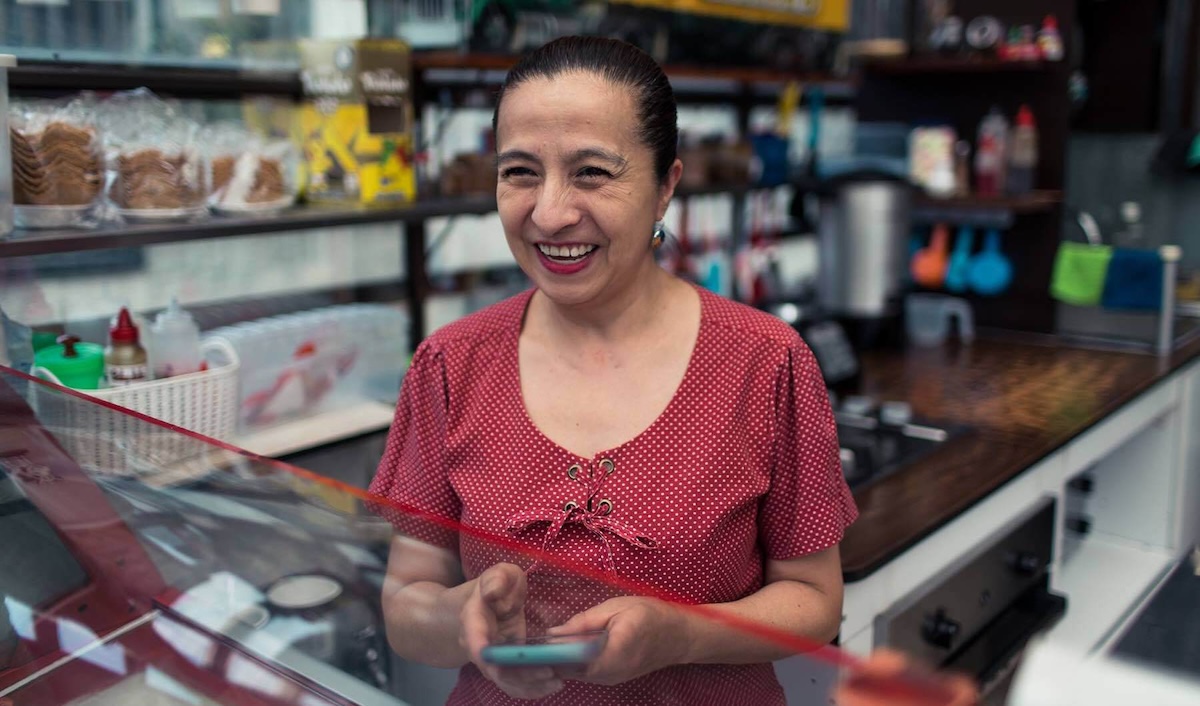Greetings, Agents of Impact!
Featured: Climate Finance
Early-stage climate tech offers a bright spot amid the gloom. U.S. climate policy is in disarray. Venture capital investments are plummeting. The IPO window is shut. And crypto is in a deep freeze. But climate tech investing is still on a tear, at least for now. Climate tech startups raised nearly $19 billion in the first half of 2022, on pace to nearly match last year’s record $40 billion in investments. The torrid dealmaking was driven by early-stage investments. “Market slowdown, market shmo-down for early-stage deal activity!” exclaimed Climate Tech VC in its first-half market tally. The deal count for seed and Series A financings more than doubled compared to the first half of 2021. A standout: carbon removal, measurement and markets.
The resilience of early-stage climate investment is something of an impact investing triumph in itself. A few years ago, support for nascent innovations was seen as a yawning capital gap. Now, a flowering of technological innovation and a wave of incoming talent makes climate investing fertile ground. This week, Systemiq Capital, led by Paul Polman, Jeremy Oppenheim and Irena Spazzapan, announced a $70 million first close of its second early-stage climate tech fund. “We haven’t seen significant effects” of the broader downturn, said Kareem Dabbagh of early-stage climate VC VoLo Earth Ventures, though valuations are being more closely scrutinized. “That’s probably good for everybody and hasn’t affected the strong early-stage growth and quality talent that we’ve seen flowing into this space.”
- Keep reading, “Early-stage climate tech offers a bright spot amid the gloom,” by Amy Cortese on ImpactAlpha.
Dealflow: Raising Funds
New impact funds build their portfolios and scratch their way to a first close. Launching a fund is easy. Raising one is harder. Making one a success takes years. As a result, ImpactAlpha is often skeptical of fund announcements. But having an anchor investor and a few portfolio deals in the warehouse lends credibility. For Agents of Impact, helping diverse and emerging managers in particular spend less time raising money and more time helping companies succeed is another way to accelerate impact (see, “Maximizing the impact of catalytic capital when supporting emerging fund managers”).
- Tech for good. Kevin Ryan, who made his first billion selling Doubleclick to Google, is targeting early-stage ventures with solutions for education, social justice, mental health and climate issues in low-income and underserved communities. His fund, AlleyCorp Impact, has been seeded with $25 million to hunt for startups using technology as a tool “to help combat poverty and economic inequality,” said Ryan. A 40-engineer lab in Montreal will work with portfolio companies to develop their technologies.
- Locavesting. Jeff Cherry said he wants to back 4,000 Black, Brown and female founders over the next decade. Cherry’s Conscious Venture Partners raised an earlier fund of $1.9 million to support founders in Baltimore using technology to break down barriers in healthcare, mobility and education. “We weren’t able to support the best companies,” said Cherry; the fund was “writing very small checks.” With $50 million, the new fund is looking to invest in up to 400 companies. Cherry has raised $15.8 million from investors including Under Armour’s Kevin Plank and Baltimore Ravens’ majority owner Steve Bisciotti.
- Sustainable investing. Collaborative Fund is aiming to raise $200 million and says it has support “from some of the largest purchasers of materials, experts in agriculture, and industry leaders.” The fund, Collab SOS, has invested in Bolt Threads, which creates mycelium-based sustainable materials for apparel, footwear and beauty brands; low-carbon cement producer Brimstone Energy; and Natural Fiber Welding, which makes plastic- and chemical-free packaging materials. “We chose the name Collab SOS because it represents the urgency needed to address this moment,” says Collaborative Fund’s Craig Shapiro.
- Share this post.
Wheelocity raises $12 million to cut waste from India’s food supply chain. Waste of fresh food is a common problem in emerging markets where many small farmers lack access to cooling technologies, buyers and reliable logistics. “We dump/lose hundreds of thousands of tons of fruit and vegetables every day due to supply chain inefficiencies,” said Wheelocity’s Selvam VMS. The Chennai-based food logistics startup functions as a high-tech middleman, supplying popular online grocers like Swiggy Instamart and Ninjacart with produce from farmers. Its network in a dozen cities includes collection and distribution centers, logistics services, and “dark stores,” from which groceries ordered online are sent. The company raised a mix of equity and debt from Lightspeed India Partners, Anicut Capital and others.
- Growth plan. Wheelocity wants to expand to an additional 30 cities in the next year. One risk: dependence on quick-commerce customers. The “instant delivery” sector, which surged in response to pandemic lockdowns, is struggling, with Pakistan’s Airlift being the latest casualty.
- Check it out.
Dealflow overflow. Other investment news crossing our desks:
- Powin, a grid-scale energy storage tech developer, secured $135 million from Energy Impact Partners, Trilantic Energy Partners and Singapore-based Sovereign wealth fund GIC.
- Moving Analytics raised $20 million in Series A funding from Seae Ventures, Citi Ventures and SteelSky Ventures to create cardiac rehabilitation care programs, particularly for women and people of color.
- Catalyst Fund scored $3.5 million from FSD Africa to support high-impact tech startups targeting underserved and climate-vulnerable communities in Africa.
- Carbon Equity bagged $1.8 million in a seed round led by 4impact to bring private climate investing to retail investors.
Signals: Policy Corner
Revamping the regulatory rulebook around shareholder engagement – again. Two Trump-era rules limited the ability of proxy advisory firms to guide clients on how to vote in corporate elections (for background, see “SEC vote weakens corporate accountability and shareholder engagement”). The Securities and Exchange Commission last week reversed those rules with a 3-2 vote. “It is critical that investors who are clients of these proxy advisory firms are able to receive independent and timely advice,” S.E.C. chair Gary Gensler wrote ahead of the vote. The S.E.C. is also moving to remove some of the barriers shareholders face in bringing up ESG-related proposals. The commission proposed a rule clarifying how shareholder proposals can be excluded from proxy materials. The change should make it more difficult for companies to duck votes on key topics, including climate change. Comments on the proposed rules are due Sept. 12.
- Make yourself heard. It’s a busy regulatory season for the impact investing field, says Fran Seegull of the U.S. Impact Investing Alliance. The International Financial Reporting Standards Foundation is seeking comments on climate disclosure and general sustainability-related disclosure by July 29. The deadline is Aug. 16 to comment on the S.E.C.’s Fund Names Rule and ESG disclosures (for background, see “S.E.C. rules would require funds to back up their ESG claims”). Get up to policy speed at ImpactAlpha’s Policy Corner, sponsored by the U.S. Impact Investing Alliance.
- Get the full schedule of upcoming deadlines.
Agents of Impact: Follow the Talent
Activate’s Ilan Gur will become CEO of the U.K.’s new Advanced Research and Invention Agency, or ARIA… Deloitte hires Wim Bartels and Arjan de Draaijer, both ex- of KPMG, as senior sustainability partners… Haley Glover, ex- of Amazon, is named director of UpSkill America, an initiative of the Aspen Institute Economic Opportunities Program… Cristina Bondolowski, ex- of HP Sustainability Impact, is named chief marketing officer at MSCI… LGT Crestone has appointed Amanda MacDonald, ex- of Perpetual Private, as head of sustainability.
Bryan Locascio, ex- of Haas Sustainable Investment Fund, joins Capital Group as ESG senior specialist of impact measurement and management… Dominique Goss, ex-o f TD Bank, is hired as executive director at M&T Bank’s Charitable Foundation to lead diversity and inclusion efforts… Knight Foundation is hiring a director of learning and impact in Miami… Climate Impact Partners seeks a remote sourcing manager for its Latin America portfolio management team.
Netflix is looking for a director of ESG in Los Angeles, Los Gatos, Calif., or New York… VC Include is accepting applications from BIPOC fund managers for its first-time fund managers fellowship… The University of Zurich’s Initiative for Blended Finance will hold its next executive training on impact investment and blended finance for development agencies and foundations Sept. 7-9 in Zurich… The Regenerative Food Systems Investment Forum will take place Oct. 12-13 in Denver.
Voting is open (through July 22) for sessions for SOCAP22. ImpactAlpha is seeking community feedback on two projects in progress: engaging youth via a mobile impact investing video game and mapping climate finance to catalyze capital for adaptation and equity. We also are excited to record a podcast on stage with ReFed’s Alexandria Coari on the opportunity for investment in food-waste reduction. Thank you for your votes! Send us one-line descriptions and links to your SOCAP Open sessions and we’ll share in The Brief.
Thank you for your impact!
– July 19, 2022











